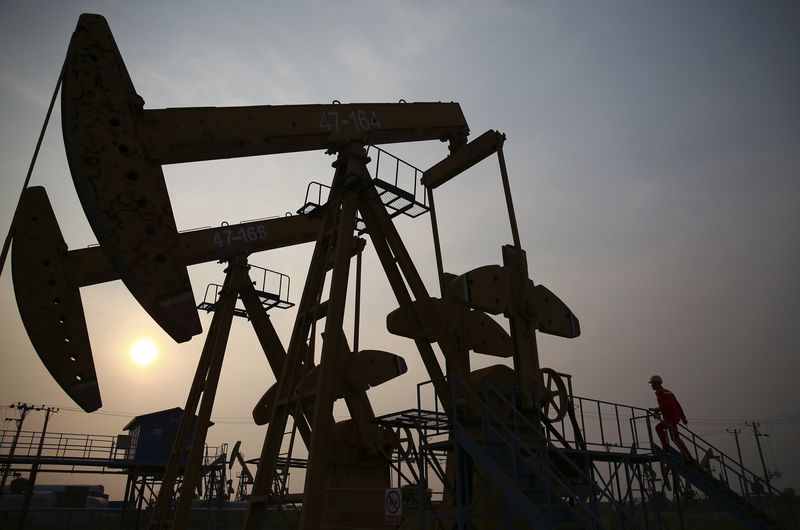By Henning Gloystein
SINGAPORE, Dec 2 (Reuters) - Crude prices dipped in early Asian trading hours on Wednesday as U.S. stockpiles rose against expectations, compounding a glut that is seeing hundreds of thousands barrels of oil being produced every day in excess of demand.
U.S. crude CLc1 was trading at $41.68 per barrel at 0000 GMT on Wednesday, down 17 cents from its last settlement and down more than 10 percent since the start of November.
Traders said the dip was due to an unexpected 1.6 million barrels increase in American crude stocks to 489.9 million, compared with analysts' expectations for a decrease of 471,000 barrels. urn:newsml:reuters.com:*:nZXN04LW00
The increase will add to ongoing oversupply which is seeing between 0.5-2 million barrels per day of oil being produced in excess of demand, leading to an over 60 percent price fall since June 2014.
A meeting by the Organization of the Petroleum Exporting Countries (OPEC) this Friday in Vienna is not expected to bring a change in the group's policy, which has seen it keep output high in an effort to defend market share against other producers like Russia and North America. urn:newsml:reuters.com:*:nL8N13Q39A
"We expect the current status quo to persist. Saudi Arabia is in no mood to cut output, especially as a collective cut remains elusive amidst rising financial stress among other major OPEC and key non-OPEC members," consultancy Energy Aspects said.
One of the supporting factors in oil prices has been demand, especially in Asia where China, the world's biggest energy consumer, is taking advantage of low prices to build up its strategic reserves.
Barclays (L:BARC) bank said that high car sales despite a dip earlier in the year also supported demand.
"China's implied oil demand growth ... grew at 3.8 percent year-on-year in October (407,000 barrels per day), an improvement relative to the 226,000 barrels per day growth in September," Barclays said.
However, it forecast a moderation in consumption over the rest of the year, with 2016 demand growth expected to average 300,000 barrels per day.
(Editing by Richard Pullin)
